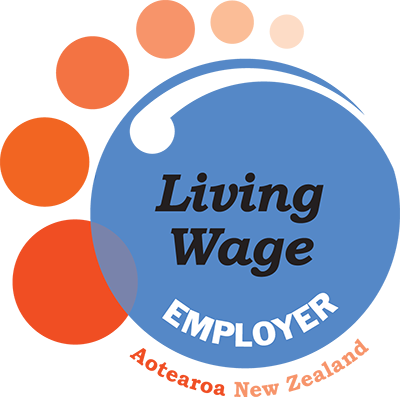KiwiClass participants
At KiwiClass, many of our participants are refugees or have had refugee experiences. The 1951 Convention relating to the Status of Refugees, to which New Zealand is a signatory, defines a refugee as: “Any person who owing to a well-founded fear of being persecuted for reasons of race, religion, nationality, membership of a particular social group or political opinion, is outside the country of his/her nationality and is unable, or owing to such fear, is unwilling to avail himself/herself of the protection of that country.” Humanitarian entrants have shown incredible strength and resilience in surviving many dangerous and life-threatening events and making it safely to Aotearoa New Zealand.
KiwiClass may also work with people seeking asylum, or people who have sought asylum. Someone seeking asylum is a person who has sought protection as a refugee, but whose claim for refugee status has not yet been assessed. It is not illegal to seek asylum under international law, regardless of the way in which a person enters a country, for example by boat without a visa, or by plane with a visa.
Wherever possible, KiwiClass ensures that humanitarian entrants, people seeking asylum and all other migrants reach their full potential and can contribute fully in New Zealand society.
Values in working with refugees and people seeking asylum
- We respect the choice made by people with refugee status to decide if they wish to be referred to as a person with refugee status, refugee, former refugee, permanent resident etc.
- We acknowledge and enhance our participants’ strengths, resilience and autonomy
- We are led by our participants’ opinions, ideas and needs
- We work in ways that are culturally relevant and sensitive to cultural and linguistic needs
- We recognise the importance and value of family and community relationships
- We follow human rights principles www.unfpa.org/resources/human-rights-principles
- We celebrate the contributions that refugees, people seeking asylum and other migrants make to a vibrant, prosperous, multicultural New Zealand.
- We recognise that the communities we work with are people first, and consequently lead by example, by using the phrase “people seeking asylum” not “asylum seekers”
- As above we refer to “people living with disabilities” not “disabled people” etc.
KiwiClass approach
KiwiClass employs several frameworks in undertaking our work. These include:
- Community-driven approach
- Strengths-based framework
- Social Justice framework
- Trauma-Informed way of working
- Professional approach
Community-driven approach
A community-driven approach focuses on communities and working in partnership. It recognises that communities know what they need and what will work and that it’s important to consult regularly to improve services and to plan for the future. A community-driven approach maintains that services or projects will be most effective when there is high community involvement and where the ideas originate in the community. A community driven approach also involves working in partnership and collaboration. This could be with a number of stakeholders, including ethnic or religious communities, not-for-profits, business, peak bodies or government. Some of the benefits of working in collaboration are that services can:
- pool resources and knowledge for better outcomes
- start with a stronger evidence base,
- reduce duplication,
- be more sustainable, and
- spread knowledge gained further.
The community driven approach influences the way we work externally and also the way we work within organisations and teams.
Strengths-based framework
A strengths-based framework supports people to recognise and use their own strengths to overcome problems. It starts from the premise that “people are the expert in their own lives” and generally have the tools and resources to overcome problems. The worker’s role is to support participants or communities to recognise and value their own strengths, articulate their own goals and support the achievement of these goals. The worker can be thought of as the “cheerleader”, “teacher” or “guide” in this process. At times, participants or communities may need more active help with a particular problem. Wherever possible, however, the worker should support the participant or community to do things for themselves or to learn how to do something for themselves. A person’s strengths can be thought of as internal strengths and external strengths. Internal strengths may include their skills, knowledge, abilities, beliefs and faith. External strengths may include their family, friends, networks, religious groups or community resources.
Trauma-Informed way of working
A trauma-informed way of working incorporates assessment of torture and trauma symptoms into all routine practice; it also ensures that participants have access to trauma-focused interventions that address the consequences of traumatic stress. A trauma-informed perspective would not ask a participant “What is wrong with you?” rather, “What happened to you?” Recognising that traumatic events made people feel unsafe and powerless, trauma-informed practice seeks to create programs where participants and staff feel safe and empowered. Generally, trauma-informed practice is organised around the principles of safety/trustworthiness, choice/collaboration/empowerment, and a strengths-based approach.
Social justice framework
A social justice framework acknowledges that we live in a society where inequality, poverty and discrimination exist and that due to societal structures and attitudes some people have more opportunity and greater wellbeing that others. A social justice framework involves working to reduce unfairness and inequality and increase freedom and equality for all. Working from a social justice framework can involve:
- Addressing structural disadvantage: through advocacy at the government, societal or community level
- Addressing the language of disadvantage: being careful about how we talk about people and participants and that we don’t reinforce prejudices
- Empowerment – providing people who are disadvantaged with resources, opportunities, vocabulary, knowledge and skills to increase their capacity
- Human rights – protecting and promoting human rights
Professional approach
A professional approach involves making decisions and acting consistently with professional standards and ethics. These may include a code of conduct relating to our particular profession (e.g. professional behaviour for teachers). Some ethical principles are common to our professional backgrounds in the social services and government sectors and should be followed by all workers. These are:
- Accountability: holding ourselves answerable and responsible to our funders, our peak bodies, our ethics, the law and the communities we work with
- Transparency: being honest and open in all our work. Ensuring others can access information about what we do and that systems are clear and understandable by others
- Evidence-based: ensuring our services and program-logic are based on “what works” and objectivity
- Continuous improvement: implementing processes to improve our work on an ongoing basis and working to achieve the best outcomes possible. Acknowledging that nothing is perfect and there is always room to do better




